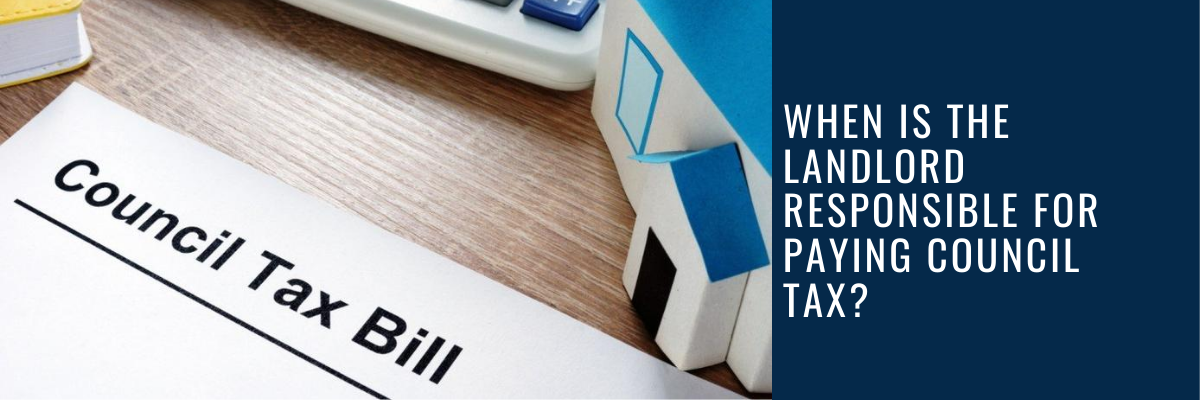We look at in a bit of detail who should pay for council tax – the tenant or the landlord?
This question isn’t as straight forward as you may think but finding out who and when are responsible is an important question. Council tax is payable on all residential properties in England and Wales, councils have and can be notoriously quick to follow up on outstanding tax.
There is a pecking order of who should pay the council tax. At the highest of the list is any adult who is occupying the property and over the age of 18. This means that in most circumstances, landlords who are not living in the property are in most circumstances not liable for council tax. But with landlords featuring further down the list, when is that the landlord required to pay, and when is that the tenant responsible? We look at 3 different scenarios below:
Scenario 1: What if the entire property is rented out on one tenancy agreement?
Tenants who are renting the entire property on a joint contract – whether family, friends or just people that have ended up as signatories on an equivalent rental agreement – are considered jointly liable for paying the property tax bill.
Scenario 2: What if the property is rented out to several tenants on individual tenancy agreements?
When landlords subdivide their property and rent it to tenants who all have separate rental agreements such as in an HMO, the landlords then become liable for council tax. Let’s look at this example to clear it up a little. If three people rent rooms within the same house on individual tenancy agreements, the landlords are the ones that would be liable to pay the council tax.
Scenario 3: What if the property is empty do landlords pay the council tax?
As the property becomes empty after the tenancy ends and there are not any tenants in residence, the landlord then becomes liable for council tax.
Councils have the authority to make a decision on what proportion of the council tax to charge. Previously a lot of councils would have offered landlords the maximum amount as a 50% discount on the bill when their property lay empty but concerns about the growing number of empty properties have changed things. Some councils now will charge even when a property lies empty for a brief period between tenancies, or in some rare cases for as little as a night.
It is worth noting that if a property is empty for at least 2 years, the council can ask the landlord to pay a supplement which could be up to an additional 50% on top of the regular council tax charges. However, if you are doing a refurbishment and your property is empty as a result the councils do have discretion on what proportion of the council tax they charge.
Discounts and exemptions
You may not know but there is a wide range of individuals who are either exempt from paying council tax or are eligible to pay it at a reduced rate. for instance, one person occupying an entire property receives a discount of 25%, while most full-time students and members of the army are completely exempt from the paying. Click here if you want to find out more about who is liable for council tax.
As a landlord, you should check your tenants’ employment status and potentially be able to benefit from a tenant’s exemption. For instance, within the house mentioned above with three rented out rooms, let’s suppose one tenant may be a full-time student, another being a member of the armed forces, and the last tenant being a young professional. As you would expect the student and the member of the armed forces are exempt from paying, which makes the young professional the only adult within the property. This would give you the landlord a 25% discount off of the council tax. The council will usually want to see evidence of exemption certificates which are easy enough for the tenants to get hold of.
Council tax ‘rules’ for landlords
It best to specify who is liable for paying council tax within the tenancy agreement with the tenants. In our agreements and in most standard agreements we do say that the tenant is responsible for paying the council tax.
To summarise there may be some circumstances in which the landlord is responsible for paying the council tax. This could be where the rent includes the council tax, such as multi-room lets in the same property. It could be beneficial to check the employment status of the tenants to see if they are exempt from council tax. We inform the tenants if they are exempt and inform them that they need to speak to the council.
It is worth putting together a budget for the cost of the council tax in between tenancies. If the property is empty due to refurbishment taking place check with the council to see if they can reduce the amount that you owe.



 By
By 




Share this with
Email
Facebook
Messenger
Twitter
Pinterest
LinkedIn
Copy this link